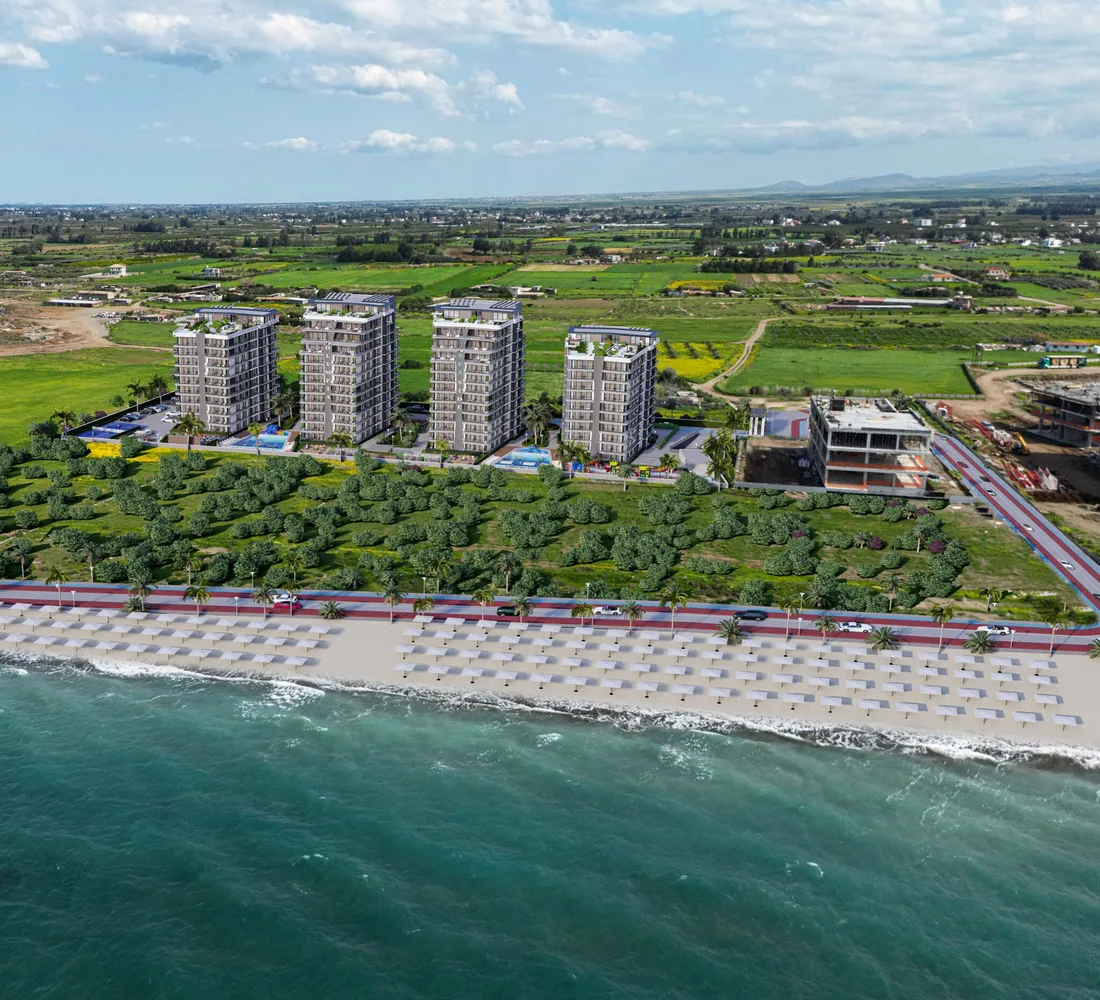Turkey is considered one of the most attractive real estate destinations for foreign investors, offering numerous advantages such as advanced infrastructure, a strategic geographical location, a rich culture, as well as laws that facilitate property ownership for foreigners. However, many questions arise regarding real estate investment in Turkey, particularly concerning the nationalities permitted to own property. In this context, this article addresses some key issues related to Turkish laws that specify which nationalities are entitled to ownership and which are not.
Legal Framework for Property Ownership in Turkey
According to Turkish laws, all foreigners of various nationalities residing in Turkey have the right to own property, with the exception of five nationalities that have been excluded for political, historical, and international reasons. The nationalities in question include: Syrian, Armenian, Greek Cypriot, North Korean, and Cuban. This exclusion is based on a variety of considerations related to international relations and national security.
Syrian Nationality
The Syrian nationality is one of the most significant in this context, as Syrians represent a large percentage of the foreign population in Turkey, particularly since the Syrian crisis began in 2011. The reason for their prohibition on property ownership stems from historical dimensions surrounding the 1939 referendum, which led to the annexation of the Hatay province to Turkey. The Turkish government has frequently discussed these issues, and some studies indicate that there are increasing efforts by Arab and Turkish advisors to persuade the Turkish government to reconsider this decision.
Other Nationalities: Cuba and North Korea
As for Cuba and North Korea, the reasons for preventing citizens of these countries from owning property relate to the repercussions of international sanctions imposed by the United Nations, which pose a barrier to economic and investment dealings with these nations. Turkey relies on its international commitments in this regard, complicating investment opportunities for citizens of these nationalities.
Greek Cypriot
Concerning Cyprus, the situation is more complex, as the ongoing dispute between Turkey and the Greek Cypriot Republic reflects historical and security tensions. Turkey only recognizes the Turkish Republic of Northern Cyprus, exacerbating the crisis between the two countries. This situation negatively impacts the opportunities for investors from this state to pursue property ownership in Turkey.
Armenia
While the relations between Turkey and Armenia have historically been tense, this is rooted in events from World War I. These tensions persist in bilateral relations, hindering property ownership opportunities in Turkish territory.
Are There Legal Ways to Bypass Restrictions?
Despite the prohibition imposed on certain nationalities, individuals from these countries can explore alternative legal options. For instance, investors can establish private companies in Turkey, allowing the property to be considered as an asset of the registered company, thus granting them the right to purchase and register the property in the company’s name. However, investors must exercise caution and follow the applicable legal procedures, as any legal action against the company will affect the property since it is considered part of the company's assets.
Conclusion
Thus, real estate investment in Turkey is an attractive option for many foreigners, but it is essential to consider the laws and restrictions imposed on certain nationalities. Investors should conduct thorough research and consult legal advisors to ensure compliance with local regulations. Discussions regarding the potential amendment of these laws and re-evaluation are expected to continue, especially with the evolving political and economic circumstances, which may open new doors for the restricted nationalities in the future.






